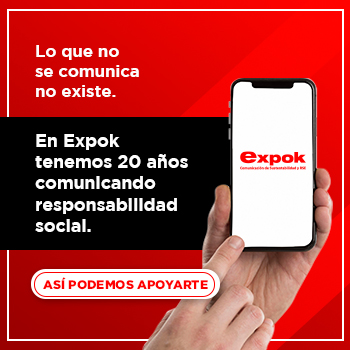The Eye Network’s New Pitch: Buy a Spot, Save the Planet
Going green is nice, but getting caught “greenwashing” — doing environmental promotions that are all talk and no action — isn’t. CBS Corp. is hoping some of its advertisers will take this under advisement and put their money where their mouths are when they talk about acting in the best interest of the planet.
The company, best known for its TV network and programs such as “CSI” and “NCIS,” is unveiling a new form of advertising it calls an “EcoAd.” Marketers who commit to this sort of promotion can purchase ad packages across CBS’s various holdings — national and local TV, radio, outdoor, online and more — with the understanding that approximately 10% of the money committed to the sponsorship will be used to fund environmental-improvement efforts at the local level.
To signal that a marketer’s ads are part of the program, CBS will air ads that are part of its “EcoAd” effort with a green-leaf logo for TV, interactive and outdoor advertising and an audio identifier on radio.
At present, the advertisers who have signed up — clients include General Motors’ Chevrolet, SunPower, O Organics, Boston Scientific, Pacific Coast Termite, Port of Los Angeles and International Brotherhood of Electrical Workers — have purchased advertising that will be seen at the local level, not on CBS’s broadcast-TV network. But the media company has hopes of capturing national advertising and will this week launch a promotion on CBS and its other media properties touting the “EcoAd.” With actor Laurence Fishburne narrating, viewers will be told to “Look for the Leaf” as a signal that the ad is doing something more than just hyping the latest beverages, cars and gadgets.
“Anyone can sell media and sprinkle a few dollars on environmental improvements and call it ‘green media,'” said Paul Polizzotto, president and founder of EcoMedia, which CBS acquired in May of last year after working with the company for about two years. The unit maintains contact with local municipalities and searches for environmental projects that require more funding to be put into practice, he said. Advertiser dollars become the catalyst that sparks a local government to take an underfunded project off the shelf and push it toward completion.
Mr. Polizzotto said his company looks for projects that will increase the EcoMedia contribution ten-fold; a contribution of $100,000, for instance, would be added to a project that would, in total, be worth $1 million when all the money is put together. Advertisers can then tell consumers their advertising is part of a project to build new facilities for local residents, to maintain energy efficiency and even to create local jobs.
In Texas, Chevrolet is purchasing a sponsorship in the Dallas area that will have the usual coterie of local advertising, but also let area residents know that Chevy’s ad dollars are helping to bring solar-powered, energy-efficient lighting and improved bathrooms to a nine-diamond baseball facility in Arlington, Texas.
The carmaker, which has been on an aggressive ad stint as of late, sees extra value in the PR and goodwill generated by informing consumers of Chevy’s donations to local environment projects.
“For me to just go and use advertising dollars to talk more about our carbon-reduction initiative — it helps, but it doesn’t hit home with as many people as I would like it to,” said Mark Harland, regional marketing manager for Chevrolet’s south central region, which includes Dallas, New Orleans and St. Louis. “If I go into your backyard, where your son or daughter is playing baseball,” he added, “that makes a direct impact in a community.” The effort offers “a little more context to people in that community and there’s a lasting effect. It’s not just a 30-second commercial.”
CBS appears to be riding a wave of interest by advertisers in linking their sales messages to noble causes. Who hasn’t been buffeted by a wave of commercials that tie the product being sold to efforts to help improve the world or a consumer’s well-being? From Pepsi’s “Refresh” project to Coca-Cola’s efforts to link Diet Coke with heart health, marketing initiatives these days hope to appear more relevant by weaving themselves more intricately into the stuff that motivates individual customers.
Other media outlets have tackled this notion. NBC Universal has in recent years begun selling advertising attached to content dedicated to health or the environment. The company’s “Green is Universal” efforts have attracted such marketers as Subaru, Home Depot and Procter & Gamble.
The environmental push isn’t completely altruistic. For CBS, cultivating such ad revenue can help the company broaden its base. The majority of CBS’s ad revenue comes from its broadcast network, but helping to develop local environmental projects can help lure ad dollars to CBS operations that gain their traction at the local level.
Fuente: Adage.com








